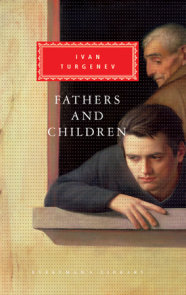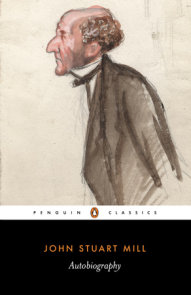READERS GUIDE
Questions and Topics for Discussion
1. How does Arkadii and Bazarov?s relationship change over the course of the novel? Why does Arkadii look up to Bazarov in the beginning? How does he see him by the end?
2. What are the attitudes of Pavel Kirsanov, Anna Odintsova, and Evgenii Bazarov toward notions of time: the past, the present, and the future? What are the effects of those differing attitudes on their characters?
3. Compare and contrast Bazarov?s and Arkadii?s very different notions of and attitudes toward love. How do the scenes of prosaic happiness–say, of Nikolai Kirsanov and his future wife–function in the novel? What does the narrator?s attitude seem to be toward those scenes? What does the narrator?s attitude seem to be toward prosaic versus aesthetic ideals of happiness and of living?
4. What is the significance of the role of order in Anna Odintsova?s life? In what ways does she begin to question that role after she meets Bazarov? What does she mean when she says to Bazarov, ?You know, you?re the same as I am?? What kind of self-revelation does Anna Odintsova have then, and why does she retreat from Bazarov?
5. How does Turgenev?s decision to have Bazarov die at the novel?s end affect our understanding of the character? Why might one imagine that Turgenev made this choice? What effect does Bazarov?s stoicism throughout his death scene have on our understanding of him? How might one interpret the dogs that he envisions as he?s dying?
6. There was a critical storm surrounding Fathers and Sons when it was first published in 1862. Certain critics on the right felt Turgenev?s portrayal of Bazarov was far too sympathetic and represented Turgenev?s misguided search for the approval of the younger generation. Certain critics on the left felt just the opposite–that Turgenev?s portrayal of Bazarov as such an extreme character was a hindrance, and very near slander, to the liberal cause, providing ammunition for the right. And some felt that Turgenev himself was not completely certain of his attitude toward Bazarov. As Isaiah Berlin succinctly put it, ?What was Bazarov? How was he to be taken? Was he a positive or negative figure? A hero or a devil?? How might one think about answering these questions? From a close reading of the text, how do you think Turgenev might have felt toward Bazarov? Toward nihilism?






















